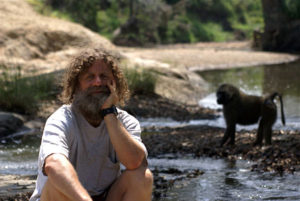Should you bother to read this memoir?
Yes, yes, and YES! This memoir appeals to anyone with any curiosity for Eastern Africa, animals, or field work. And honestly, even if you care about none of those things, Sapolsky will make you. I wouldn’t recommend the novel to, say, middle schoolers because of the crude language and concepts slightly beyond their reach. However, the novel is highly informative, entertaining, and earnest, and for those reasons, I would recommend it to any person over the age of 14. The memoir will tug at your heartstrings and pull you even further towards the end of the novel. It’s an emotional rollercoaster, and it feels just as fast.
Robert’s rights and wrongs:
I hope you enjoyed my alliteration, but in all seriousness, this novel is outstanding. It evokes deep thought and intense emotions regarding the welfare of baboons, specifically as Sapolsky personifies them in great detail, in relation to the corruption and necessity of the tourism industry. With his exceptional sense of wit and uncanny observations, Rob adds vibrant color through all of his experiences. His stories carry a sense of informality, like he’s recalling his vacation to his bros over some booze; he does not beat around the bush – no pun intended.
 Sapolsky’s honesty is brutal, but refreshing. Despite all the times he was scammed, sustaining himself with canned spaghetti and camel’s milk, attacked by army ants, and fighting with wardens, Sapolsky remains upbeat and humorous. You cannot help but feel his frustrations, joys, and fears as you read. Furthermore, Sapolsky makes you want more at the end of the novel. You want to know how the troop evolves after the outbreak of TB, but instead are left with only a list of who perished.
Sapolsky’s honesty is brutal, but refreshing. Despite all the times he was scammed, sustaining himself with canned spaghetti and camel’s milk, attacked by army ants, and fighting with wardens, Sapolsky remains upbeat and humorous. You cannot help but feel his frustrations, joys, and fears as you read. Furthermore, Sapolsky makes you want more at the end of the novel. You want to know how the troop evolves after the outbreak of TB, but instead are left with only a list of who perished.
Frankly, my only critique is the lack of organization in the novel. Without Sapolsky’s commentary of East Africa, the novel surely would have fallen flat. However, Robert lacked clear transitions connecting chapters of social experiences with research of the baboons, and it was easy to lose track of who was who, what happened where, and chronology became nearly impossible to distinguish.
